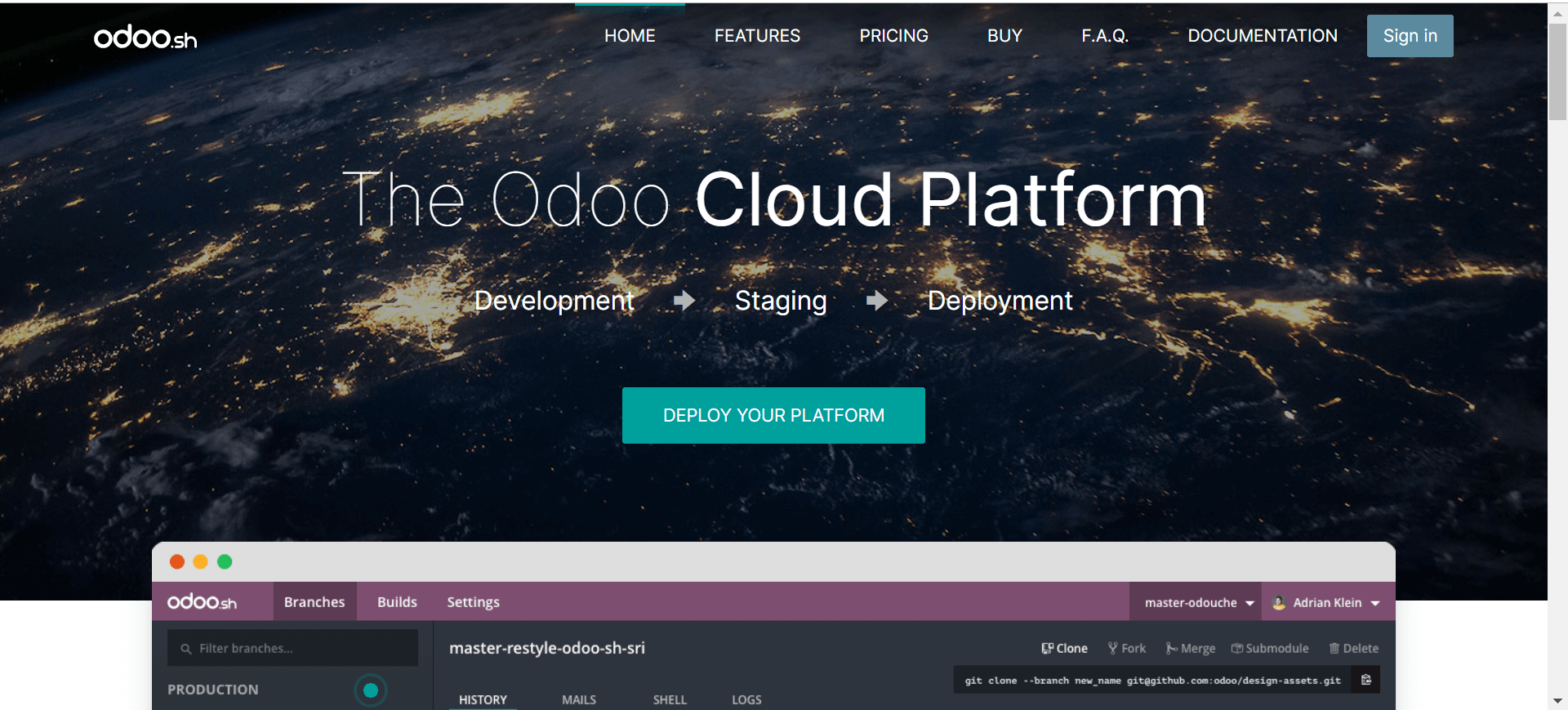Completed among the many projects during the university day, Odoo for Fabien Pinckaers began its journey as TinyERP. It was the most successful of his projects, finding its way through the market later as OpenERP and now Odoo. TinyERP started out in march of 2002 and released in the year 2005. Three years in the market, a decision not to stay tiny anymore changed the name to OpenERP. In 2013, Odoo, with an impressive growth of around 1549% over a five-year period, ranked itself in Deloitte's Technology Fast 50 for fastest growing companies in Belgium.
Its growth beyond the limits of enterprise resource planning software once again changed the name to Odoo. Odoo, an On-Demand Open Object, according to Pinckaers is not just an ERP, it is a suite of business apps.
“We needed a brand that is free of constraints. We wanted a brand that allows us to release ERP applications like sales, accounting, inventory, procurements. But the brand should also fit with our latest apps like website builders, e-commerce, point of sales, or business intelligence. "
Renamed Odoo, the team decided to focus better on the product rather than service. The efforts were made to improve the products to include various business suite applications that were not part of an ERP system. The commitment to remaining open source has not changed and it will remain the same according to Odoo. On the same grounds, Odoo still prioritizes management applications like accounting, inventory, CRM, and so on. The renaming was a new direction of growth for the company as far as the product and services are concerned. As Odoo, the company won three consecutive recognitions in the BOSSIE awards of 2014, 2015, and 2016, following the 2013 recognition while it was still OpenERP.
The suite of applications is developed to meet the versatile needs of small and medium-sized enterprises as well as the functionalities and sophistication required by larger enterprises. Though a relatively new entrant in the ERP system for large enterprises, Odoo has made some impressive development in the field.
Currently recording more than 5 million users across the world, with 80 plus languages ??available, Odoo marks itself as one of the fastest-growing ERP softwares in the world. The current Odoo version is the Odoo 14.0 released in October 2020, enhancing the user experience once again. You can read about the features of Odoo 14 and the UI and technical changes.
Odoo is available in two editions, the free edition called Community and the acquired edition, Enterprise. With each version update, the available applications and features in the Community edition keep changing. But with Enterprise edition, we can avail of all features, support service, migration services, and so on. Having a good grasp of the two editions and the add-on features that the Enterprise offers, we can decide if our company really requires the paid version. The key differences between the two in the latest version are outlined in the blog, Odoo 14 Enterprise vs Community.
The pricing of Odoo depends on the users, applications used, and the hosting type. Odoo supports any number of users and is a good choice for small to large companies, thanks to its adaptive design. Odoo currently offers three types of hosting,
- Online hosting: the Enterprise edition of Odoo is available for cloud hosting. The hosting is SaaS (Software as a Service) type and is an Enterprise edition exclusive hosting option. With this hosting, we can access the database from the cloud. We can use our personal credentials to connect to the database from odoo.com through a web browser. Odoo takes the responsibility for maintaining the database and you have no installation to worry about. It only allows the standard Odoo apps and not the third-party apps. The database access would require an internet connection and does not support customizations.
- On-premise hosting: in layman's terms, it is the local hosting where we can take care of the installation, maintenance, and security of our data. This kind of hosting would require technical expertise, but offers full autonomy over our database. Available for both Community and Enterprise editions, this hosting requires us to have a local server installation to run the database. Though requiring advanced technical expertise, the local hosting or on-premise hosting lets you customize the apps and also to install third-party apps.
- Odoo.sh: this hosting type is a combination of both online and on-premise. The database in Odoo.sh is cloud-based while the customizations and third-party app installations are possible. The hosting type is Platform as a Service (PaaS). We can have all the advantages of cloud hosting, while also making it possible to customize and integrate according to our requirements. The end customer has more control over the server than Odoo online though not to be worried about regarding the infrastructure. A comprehensive comparison of the Odoo.sh and Odoo Online is provided in the blog Odoo.sh vs Odoo Online.

In 2021, Odoo has over 30 main applications, maintained and updated by Odoo, available in all hosting types. Additionally, in Odoo on-premise and Odoo. sh, we have the options of customization and installation of third-party apps. Odoo is an open-source community, with more than 550 partners across 120 countries, developing more applications to meet the dynamic business needs across the globe. Though a global company, Odoo ensures local solutions through these certified partners. Odoo also has a partner ranking system, which lets the partners be ranked according to their service and contributions.
With more than 5 million users, Odoo is a trusted suite of business management apps for many customers like Toyota, Hyundai Portugal, and so on. Constantly growing in both user network and in developer network, Odoo plans to progress with unbelievable provisions for your business needs, without limiting its scope to the ERP system. The shift from OpenERP to Odoo was the promise of a suite that does not see a limit to the scope and range of its services.